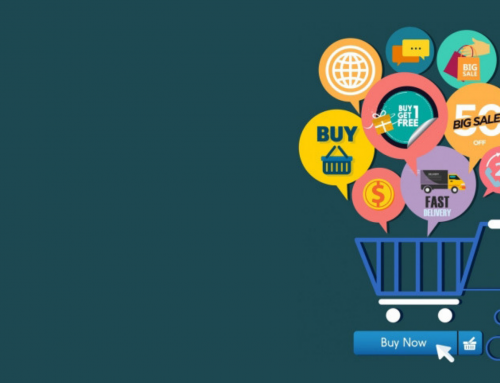Social commerce is what happens when e-commerce and social media have a baby, and it could mean big sales for your business.
Social commerce is a $89.4 billion market right now. It’s projected to grow to $604.5 billion in the next seven years. So, if you’re a business with products to sell, read on.
Social commerce is the process of selling products directly on social media. With social commerce, the entire shopping experience — from product discovery and research to the check-out process — takes place right on a social media platform (Facebook, Instagram and Pinterest at the moment).
This means that there are shopping opportunities right on the platform that your audience uses most, and they never have to leave the app.
Social commerce vs. e-commerce
E-commerce refers to a shopping experience via a website or dedicated app. Social commerce allows the customer to make their purchase within their social media experience. Social commerce is thus not e-commerce.
Why is social commerce a good idea for your brand?
Social commerce makes shopping a social experience
Shopping on social media makes the experience much more interactive than a typical e-commerce shopping spree.
Social commerce removes friction
See it, click it, buy it. Social media shops remove friction from the consumer journey, making it easy to follow through from discovery to purchase. You like something, you click and checkout. Simple.
Social commerce takes away unnecessary steps that might end up in an abandoned cart. Ultimately, every click of the mouse is an opportunity for a potential customer to change their mind. If a user has to go from your ad, to your website, add the product to a cart, and fill in their credit card info, that’s a lot of steps in which in you might lose their attention.
There’s money to be made
With 81% of shoppers researching products on Instagram and Facebook, and with shopping a top priority for 48% of Pinterest users, researchers are forecasting that e-sales will surpass $735 billion in the next three years. It makes sense to take your goods to the online spaces where your customers are already hanging out.
Social commerce offers an instant focus group
Not only does social commerce speed up the transaction process, it also offers an incredible way to collect feedback. On social, you have clear data about exactly who your customers are, and the opportunity to chat with them after via comments or direct message, to provide personalised customer service, and to find out what they like and don’t like.
It’s where Millennials and Gen Z like to shop
If your target demographic lies in the 18-to-34 age range, they’re online and waiting to shop while they scroll. 48% of U.S. internet users this age made a purchase on social media in 2019. For those in that demographic who haven’t shopped on social media yet, 27% have expressed interest.
Target your prime audience
With an incredible wealth of data available on social, there is every opportunity target your advertising. Social commerce offers the chance to get specific, ready-to-buy products in front of the very people who would love them, in a way that traditional e-commerce and marketing cannot.
At the moment, only a few of the top social platforms offer social commerce:
- Facebook Shops – Your Facebook shop will be accessible from your Facebook Page, your Instagram profile, your Instagram Shopping ads, or shoppable stories and post. When it’s conversion time, you’ve got the option for your customers to do an in-app checkout, or open up a direct Messenger chat with your business. You can also send them to your website.
- Instagram Shops – 60% of people discover new products on Instagram. Instagram Shops allows users to buy products featured in your photos and videos from anywhere in the app. You do need to have a Facebook Shop set up first (they pull data from the same catalogue), and you just need to live in an eligible region and have an Instagram Business account that’s connected to a Facebook page.
- Pinterest – Pinterest does not strictly offer social commerce. Business accounts have the option to create “product pins” (formerly buyable pins). But it’s important to note that these are not available to purchase within the app. If you click on something, you’ll be sent off Pinterest to an e-commerce site to complete the sale.
- TikTok is reshaping the world of social commerce, introducing shoppable content to its platform and leveraging the power of influencer marketing.
Best practice for social commerce:
- Streamline customer service and sales with an AI bot
- Engage with customers – be human and authentic
- Keep a close eye on comments and shares
- Encourage reviews
- Target intelligently to get your product in front of the right people
One final note – social commerce is just one part of your whole digital plan. You’ll need to build up your brand across all your platforms for your best chance at success, online or offline.
About Joburg Capital:
Joburg Capital is a global digital marketing agency based in Johannesburg helping businesses grow and succeed with creative digital strategies tailored to their needs.
Our team of experienced professionals combine the latest strategies with proven tactics to create cost-effective and results-driven campaigns.
Discover how we can transform your business and reach new heights.


